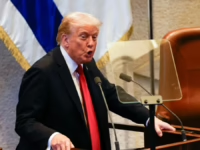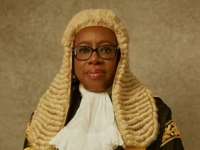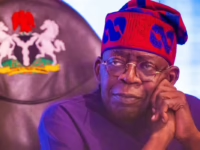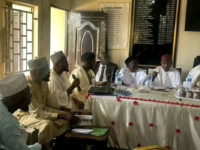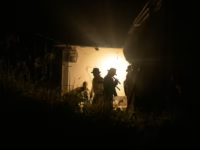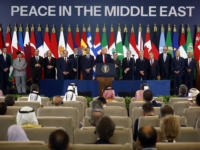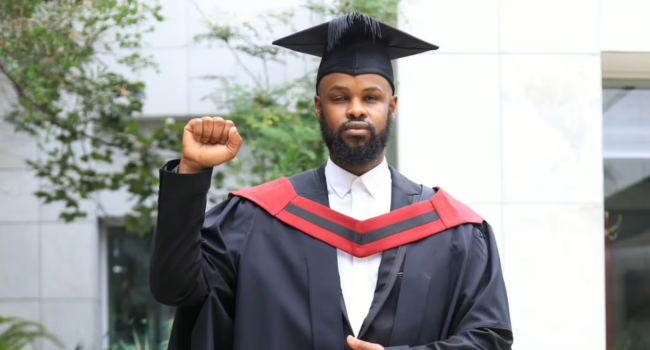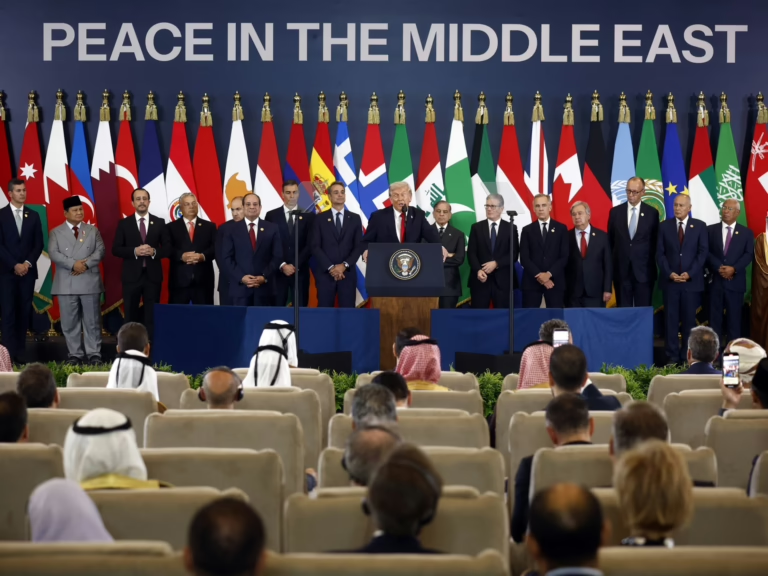US President Trump hails a ‘new dawn’ as Gaza conflict concludes, yet uncertainties about what lies ahead persist.
Global political figures gathered in Egypt to formalize a ceasefire agreement for Gaza, with US President Donald Trump leading the proceedings alongside key mediators including Egypt, Qatar, and Turkey.
Addressing attendees at the coastal city of Sharm el-Sheikh on Monday, Trump painted an optimistic vision for Gaza’s future as a center for growth and investment, despite the extensive devastation wrought by Israel’s prolonged two-year military campaign.
Related Articles
list of 3 itemsend of list
“Today marks the beginning of a new and hopeful chapter, and the process of reconstruction is now underway,” declared the US president, commending the regional leaders who facilitated the ceasefire between Israel and Hamas.
He further remarked, “Rebuilding might be the simplest phase ahead, as we possess unparalleled expertise in construction.”
The ceasefire has been met with a mix of relief and apprehension among Gaza’s residents, where Israeli strikes have claimed at least 67,869 lives, with countless others presumed trapped beneath the debris.
“There is virtually nowhere safe for people to reside,” reported Al Jazeera’s correspondent Hani Mahmoud from Gaza.
He noted that those returning to the remnants of their homes face severe shortages of essentials such as clean water.
“Entire districts have been completely razed,” Mahmoud described. “Many neighborhoods are unrecognizable compared to what we once knew.”
Despite the catastrophic impact of Israel’s offensive, which rendered much of Gaza uninhabitable and has been labeled genocide by numerous academics and gaza-hospital-attack/” title=”Fury Erupts as …s …Double-Tap… Strike on … Hospital Kills Five Journalists”>human rights organizations, President Trump’s discourse on Gaza’s future centers heavily on Israeli security concerns.
“Reconstruction efforts must be accompanied by Gaza’s demilitarization,” Trump emphasized in his address.
Regional leaders, including Egyptian President Abdel Fattah el-Sisi, lauded Trump’s role at the summit but stressed that only the establishment of a Palestinian state can secure lasting peace.
“Egypt, alongside its Arab and Muslim allies, reaffirms that peace is our strategic objective, achievable only through justice and equal rights,” el-Sisi stated.
Nonetheless, tangible progress toward this objective remains elusive.
Israel maintains a firm stance against the formation of a Palestinian state, while the US, despite mounting criticism over Gaza’s destruction, has continued to supply Israel with substantial military aid and diplomatic backing, offering only ambiguous statements regarding Gaza’s future governance.
Concerns have also been raised about the potential involvement of staunchly pro-Israel figures, such as former UK Prime Minister Tony Blair and Trump’s son-in-law Jared Kushner, in overseeing Gaza’s post-conflict administration.
“We observe global leaders uniting to ensure alignment in ending this conflict,” said Zeidon Alkinani, a Georgetown University Qatar lecturer, in an interview with Al Jazeera.
“However, the sustainability of peace remains uncertain. Are we addressing the root causes that led to the events of October 7 and subsequent turmoil? That is the critical question.”
Trump’s proposal envisions a council of Palestinian experts managing Gaza, supervised by a “Board of Peace” chaired by Trump and Blair.
“We must scrutinize the legitimacy of such a governing body,” Alkinani added. “Who will select its members, and who will hold them accountable?”





